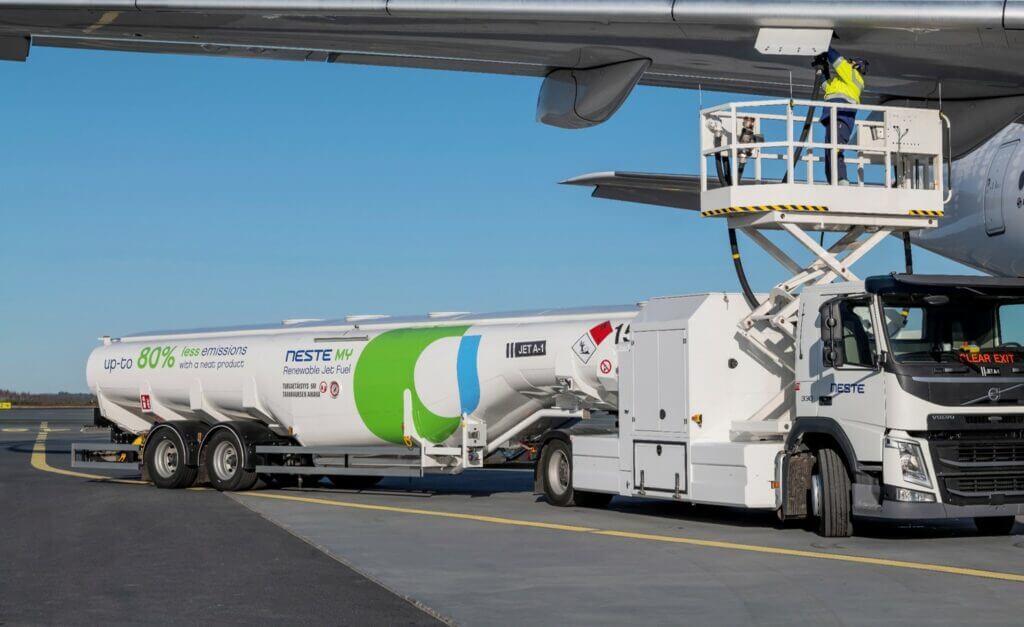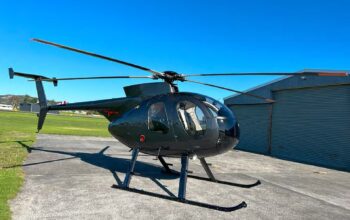Estimated reading time 5 minutes, 27 seconds.

The Canada Infrastructure Bank (CIB) and Azure Sustainable Fuels Corp. (Azure) are partnering on a front-end engineering and design (FEED) study for sustainable aviation fuel (SAF) production in Canada.
Azure’s study is now fully funded and on track to be completed in 2024.
The CIB’s $8.4 million funding helps support Azure’s critical path of producing SAF by 2027, which could contribute materially to helping Canada on the path towards meeting its climate goal of net zero emissions by 2050.
The CIB investment provides support for Azure to leverage Canadian skillsets and maximize options by developing three potential Canadian sites in parallel. The company has been working closely with provincial, municipal and Indigenous governments to adhere to all environmental regulations.
SAF is considered an essential component in reducing emissions from the aviation industry and its reliance on traditional fossil-based jet fuel. The use of Azure’s SAF in existing jet engines could reduce airline emissions by approximately 2.6 million tonnes of carbon dioxide per year globally – the equivalent of removing 550,000 passenger vehicles from the road.
The greenhouse gas emissions reduction is driven by the use of Canadian feedstock from agricultural products such as canola and soybean oils, used to develop the SAF.
With the International Coordinating Council of Aerospace Industries Associations committing to adopt 100 per cent SAF capability by 2030 for all commercial and military aircraft, the sustainable fuel market is expected to grow significantly.
As demand increases, SAF, produced by Canadian suppliers is expected to add long-term value to the agricultural sector for Canada.
The CIB’s FEED initiative is part of its project Acceleration Funding developed to support energy transition projects in Canada. The CIB is working in partnership with the private sector to target energy transition projects in Canada, including carbon capture and storage, hydrogen, and clean fuels.
Acceleration funding helps address the financing gap for engineering and design work, unlocking potential final investment decisions for large energy transition infrastructure.
“By partnering with Azure through FEED financing, we are supporting a made-in-Canada solution to expand production of sustainable aviation fuels, leverage Canada’s agricultural sector and reduce greenhouse gas emissions in the aviation sector,” said Ehren Cory, CEO of Canada Infrastructure Bank.
“This is an exciting first step for the CIB and we look forward to advancing more projects such as carbon capture and storage, hydrogen, and clean fuels with our FEED financing initiative.”
“Azure is pleased to be partnering with the CIB to progress our plans to provide a significant source of SAF to global markets and support the transition to a more renewable future. We look forward to continuing to advance this exciting opportunity,” said Douglas Cole, CEO, Azure.
“Investments in Canadian clean technology are unlocking job-creating projects and long-term competitiveness for Canadian industries. Today’s investment is an important step in decarbonizing aviation by using Canadian renewable fuel alternatives. As the global aviation industry moves towards more sustainable alternatives, Canada is well-positioned to become a global supplier of choice,” said Jonathan Wilkinson, minister of natural resources.
This press release was prepared and distributed by Azure.








